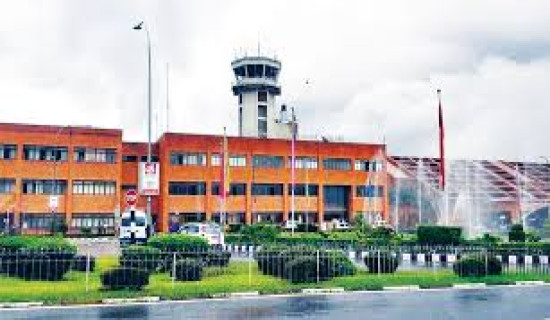- Saturday, 28 February 2026
Defend Press Freedom
The Press Freedom Day was celebrated globally amidst a variety of programmes on May 3. This year the Press Freedom Day carried the theme of journalism under digital siege, which sheds lights on the challenges posed by the internet journalism. In advanced countries, journalists have come under surveillance and digitally-mediated attacks, with negative repercussions on the credibility of digital media and press freedom. Modern technology has opened new scope and scale of journalism profession but at the same time there is the risk of the abuse of media freedom. People with vested interests can manipulate the constitutionally guaranteed media rights to meet their parochial objectives. The Press Freedom Day is a moment to reflect on the cardinal values of journalism and the contribution of journalists to disseminate correct information to the public and enhance transparency and accountability in the society.
Nepali journalists observed the Day with enthusiasm. For them, the day provides an occasion to express concerns over their professional, financial and physical security in a robust manner. In Nepal, the media has been an integral part of democratic movements. Their role in establishing democratic system has well been recognised and appreciated by almost all segments of the society. During their crusade against the autocratic regimes, many were arrested and subjected to physical tortures and death. Even during the decade-long Maoist insurgency, the journalists put their life in danger to report the accurate situation of conflict-hit places. They also played a critical role in resolving conflicts as well as implementing the peace agreement inked between the then Maoist rebels and the government. The journalists have not only exposed the malfeasance, anomalies and corruption scams but also contributed to promoting peace, development and harmony.
Acknowledging their remarkable contribution to promote democracy, good governance and social reforms, the new constitution has guaranteed full press freedom. No law can be introduced to curtail it and terminate the registration of a media organisation. The state’s liberal policy and favourable laws and Acts have led to the unprecedented growth of media over the years, especially after the 1990 political change. The other day, Minister for Law, Justice and Parliamentary Affairs Govinda Prasad Sharma (Koirala) said that the government is committed to protecting freedom of expression and would not enact any laws that seek to stifle press freedom. According to the news report of this daily, Minister Sharma said that the government wanted to discuss with the concerned stakeholders the review of the laws, both existing and in pipeline.
Nonetheless, the ever expanding online news portals and social media have posed challenges to the journalism sector, demanding new laws and Acts to address them. The internet giants are surreptitiously exploiting the citizens’ data to promote their business and increase their revenues. The surge in disinformation and hatred content has undermined the professional ethics of the press. It is necessary to unveil the policy in line with the technological development. It must be understood that the media has no unlimited rights, it should operate under the prescribed laws. The tendency to infringe upon the constitutional boundary in the name of press freedom may give rise to anarchy. The state has the responsibility to protect the professional security and inviolable rights of journalists. In a similar manner, it should arrange credible legal mechanisms to check the misuse of media so as to ensure healthy exercise of press freedom.

















